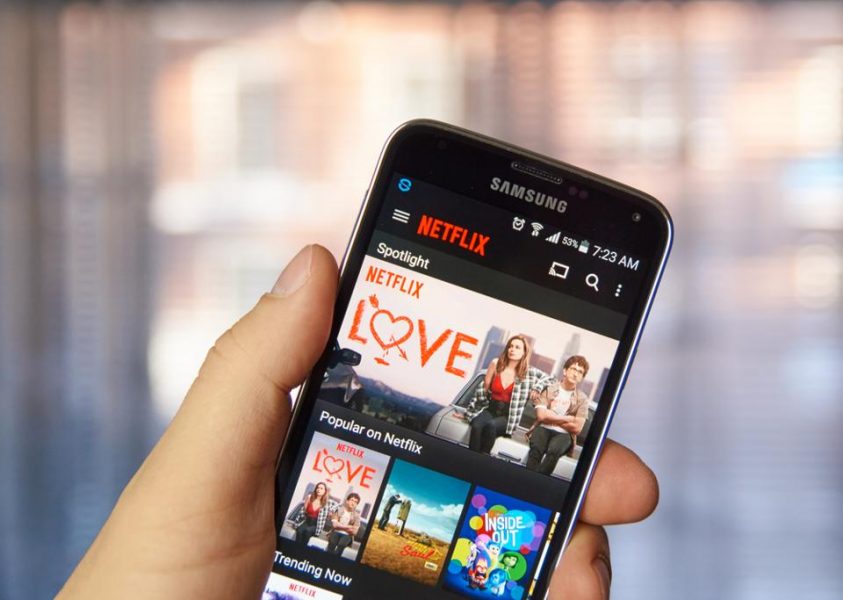The term ‘Netflix n Chill’ has found a place in the Urban Dictionary. While one meaning says watching shows and movies on Netflix when your “bae” doesn’t want to come over, it can also mean the opposite – a booty call made on the pretext of watching Netflix shows. Netflix has become a cultural imperative even though many cinema purists and TV studios see this as a threat to Hollywood.
Academy Award winning filmmaker Steven Spielberg, in a recent interview, talked about how Netflix movies shouldn’t be given an Oscar nomination. “Once you commit to a television format, you’re a TV movie,” he told ITV News. “You certainly, if it’s a good show, deserve an Emmy, but not an Oscar. I don’t believe films that are just given token qualifications in a couple of theatres for less than a week should qualify for the Academy Award nomination.”
Earlier, Christopher Nolan had called the streaming giant’s release plans “bizarre” and “mindless.” He later apologized to chief content officer Ted Sarandos, however, calling his remarks “undiplomatic.”
Recently, the digital streaming giant was charged with a lawsuit by the production moguls, 21 Century Fox for deliberately “stealing” their chief executives despite an existing contract. As it turns out that, to develop hundreds of hours of programming in just a few years, Netflix had to poach executives from many of its partners and competitors to satisfy its ever-growing needs.
Ever since Netflix began distributing movies, Hollywood has been divided over whether Netflix films deserve the same recognition as traditional, theatrically released films, particularly when it comes to the Academy Awards.
Furthermore, Netflix recently threatened to withdraw from the Cannes Film Festival over the new rule that bans Netflix movies from entering the main competition at the international film fest. Earlier, festival director Thierry Fremaux had said Palme d’Or shouldn’t go to a film without a theatrical release.
Alfonso Cuarón’s Roma, Paul Greengrass’s Norway, Jeremy Saulnier’s Hold the Dark, Orson Welles’s The Other Side of the Wind, and Morgan Neville’s documentary They’ll Love Me When I’m Dead, about Welles, are the Netflix movies that were scheduled to be screened at the event starting May 8.
The hostility among the film purists is evident and with Apple set to launch it’s own platform, this battle against digital streaming platforms like Netflix, Amazon, Hulu, will not get over anytime soon. As Damon Wise writes for The Guardian, “It’s not unthinkable to suggest that, in time, these digital platforms might yet team up to found their own festival (indeed, France currently has five TV events, from the long-running Monte Carlo television festival to this year’s inaugural Canneseries) and establish the streaming movie as a genre of its own. While Netflix and Cannes are engaged in a cold war, the fight for the future of cinema is warming up.”
Meanwhile, Netflix has already spent 6 billion USD on programming in the past two years but they are devoting more towards creating original shows. According to The New York Times, Netflix will spend $7-8 billion on content in 2018. The report further adds that of the 104 million paid Netflix subscribers, 4.5 million are from the international market with its net income rising to $130 million in the last quarter of 2017.
It was only six years ago that Time Warner Inc. CEO Jeff Bewkes dismissed Netflix as being a threat. “It’s a little bit like, is the Albanian army going to take over the world?” Bewkes told The New York Times. “I don’t think so.” But much has changed since then.
FX Networks Chief Executive Officer John Landgraf has warned that Netflix’s ambitions are so great that it could develop a monopoly over content production, just like its Silicon Valley peers have grabbed large market share in social networking, according to Hollywood Reporter.
With original shows like Stranger Things, The Crown, Mindhunter, the number of subscribers only increased for Netflix globally. It also has a few collaborations like with Sony for The Crown, a drama on British Queen Elizabeth II created by Peter Morgan and also with Walt Disney Co.’s Marvel Entertainment for shows like Luke Cage and Daredevil.
This year, Netflix bagged eight Oscar nominations, including four for Mudbound, igniting a debate on traditional films versus films that are released digitally. Mudbound’s director Dee Rees said when accepting an Independent Spirit Award earlier this year: “Cinema lies not in a strip of celluloid, a length of magnetic tape … a smartphone screen, a television screen, or a 52-foot high IMAX screen. Cinema lies in absorbing, electrifying performances by committed actors that make audiences feel, think, observe themselves and the world around them in a more expansive way. I know that as independent filmmakers … we of all makers are far, far beyond any identity tokenism or snobbery of form in both production or distribution. Mudbound is cinema, and we are grateful for this recognition. Because nothing diminishes nor enhances the value of the work except the work itself.”
Recommended
From a startup to an entertainment powerhouse, the financial and cultural growth of Netflix has been phenomenal. Television studios that have witnessed this, call them as the “public enemy”. In the age of smartphones and short attentions spans, the traditional way of viewing cinema is a passe. Now, content is God and to feed the ever-changing and rising demands of viewers, traditional cinema alone can’t feed this monster. It has proved to be demographically and geographically restricting, which is why digital platforms like Netflix and Amazon Prime have managed to cultivate such a huge number of followers.
Nick Bilton sums it up for Vanity Fair, “But the real threat isn’t China. It’s Silicon Valley. Hollywood, in its over-reliance on franchises, has ceded the vast majority of the more stimulating content to premium networks and over-the-top services such as HBO and Showtime, and, increasingly, digital-native platforms such as Netflix and Amazon. These companies also have access to analytics tools that Hollywood could never fathom, and an allergy to its inefficiency.”



